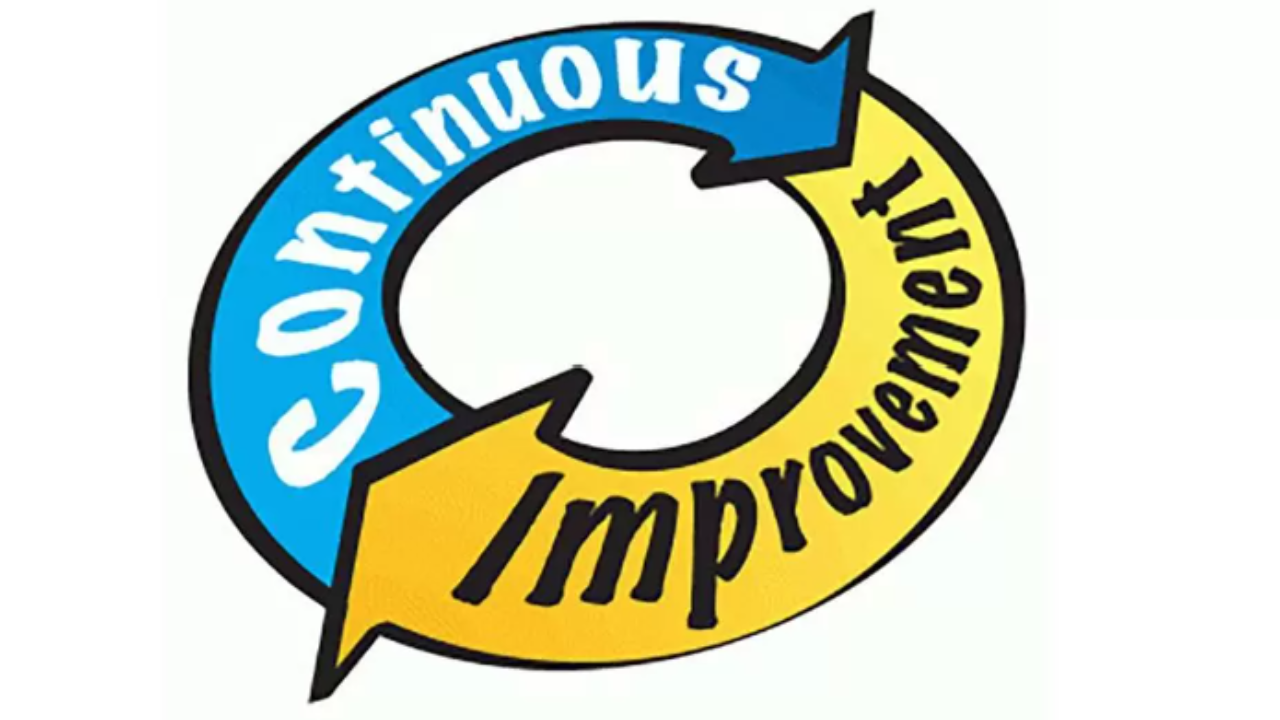What will ISO 9001 Do for My Company?

What will ISO 9001 Do for My Company? Here’s How True North Quality Can Help You Find the Answer
If you’ve ever asked yourself, "What does ISO 9001 do for my company?", you’re not alone. Many businesses grapple with whether ISO 9001 certification is worth the effort and expense. In a world where competition is fierce and customers are more demanding than ever, achieving ISO 9001 certification isn’t just a checkbox—it’s a strategic tool that can transform your operations, strengthen your reputation, and unlock growth opportunities.
At True North Quality, we’ve seen firsthand how implementing ISO 9001 can take companies to the next level. Let’s break down what ISO 9001 does for your business and why our team is the perfect partner to guide you through the process.
What is ISO 9001?
ISO 9001 is the international standard for Quality Management Systems (QMS). It provides a structured framework to help companies ensure that their products and services consistently meet customer and regu...
The Cost of Implementing ISO 9001
The Cost of Implementing ISO 9001: Why It’s Worth the Investment
ISO 9001 is the world’s most widely recognized quality management standard, designed to help businesses improve efficiency, ensure product consistency, and satisfy customer expectations. However, one of the biggest questions manufacturers and businesses face is the cost of implementing ISO 9001—and whether that investment is justified.
In this blog, we’ll explore the costs involved in implementing ISO 9001, but also the hidden and often underestimated costs of not implementing it, particularly the cost of poor quality (COPQ) and the risks of leaving a Quality Management System (QMS) stagnant.
The Cost of Implementing ISO 9001
Implementing ISO 9001 can vary significantly in cost depending on the size of the company, the complexity of operations, and the current state of the existing QMS. Generally, the costs fall into several categories:
1. Consulting and External Expertise
Unless your internal team has extensive exp...
How a Quality Manual Supports Continuous Improvement in Manufacturing

How a Quality Manual Supports Continuous Improvement in Manufacturing
In today’s competitive manufacturing environment, the need for continuous improvement (CI) is not just an aspiration; it's a necessity. Whether you're striving to meet ISO 9001, AS9100, or other industry-specific standards, the core of your improvement efforts lies in your Quality Management System (QMS). One of the cornerstones of this system is the Quality Manual—a top-level document that sets the foundation for quality across your organization.
But how exactly does a Quality Manual support continuous improvement? Let’s break it down.
1. Establishing a Structured Framework for Quality
A Quality Manual outlines the high-level structure of your QMS. It defines your organization's quality objectives, policies, and responsibilities. By doing so, it sets a clear direction for continuous improvement efforts.
Through clear definitions of roles, processes, and expectations, the Quality Manual ensures that all team mem...
The Risks of Tribal Knowledge in Manufacturing: Why Documented Procedures Are Critical

The Risks of Tribal Knowledge in Manufacturing: Why Documented Procedures Are Critical
In manufacturing environments, efficiency, precision, and consistency are essential for success. Yet, many companies inadvertently rely on "tribal knowledge"—the unspoken, undocumented know-how held by certain experienced team members. While this informal knowledge can help solve problems quickly, it also poses significant risks that can impact quality, productivity, and the overall success of the business.
Let's explore why tribal knowledge is risky in manufacturing and how having a documented quality management system (QMS) is the critical remedy.
What is Tribal Knowledge?
Tribal knowledge refers to the unwritten, informal expertise that resides within the minds of individual team members. It often includes years of hands-on experience and insights that were never formally documented or shared. While these employees may have invaluable insights, relying on tribal knowledge alone creates serious...
Why Every Business Needs a Quality Manual: Beyond ISO Requirements

Why Every Business Needs a Quality Manual: Beyond ISO Requirements
In today’s fast-paced business environment, having clear and structured processes is crucial for ensuring consistent quality and long-term success. While ISO standards no longer require a formal quality manual, it remains an essential tool for businesses of all sizes. A quality manual is more than just a document—it’s a blueprint for how your company operates, maintains standards, and continuously improves. Even though it’s not mandated by ISO, the benefits of having a quality manual far outweigh the effort to create one.
Here’s why every business should have a quality manual and how it can revolutionize the way you operate, far beyond the demands of certification.
1. A Centralized Guide for Quality Management
One of the most significant advantages of having a quality manual is that it provides a centralized, clear guide for your Quality Management System (QMS). This document outlines your business’s approach to qua...
How to Conduct Effective Internal Audits for ISO/AS Certification

How to Conduct Effective Internal Audits for ISO/AS Certification: A True North Quality Guide
Achieving and maintaining ISO 9001 or AS9100 certification is more than just a one-time event. It requires continuous improvement, rigorous adherence to standards, and a commitment to quality at all levels. One of the most crucial tools for ensuring your company remains compliant and ready for certification is the internal audit. At True North Quality, we specialize in helping manufacturers streamline their internal auditing process, making sure it’s thorough, effective, and aligned with ISO/AS standards.
In this blog, we’ll walk you through how to conduct effective internal audits to not only maintain compliance but also drive continuous improvement across your organization.
1. Understand the Purpose of Internal Audits
Internal audits are not just a formality or a compliance checkbox. They are a powerful tool that helps you identify gaps, inefficiencies, and potential risks within your Qu...
How Deming’s 14 Points Can Revolutionize Your Manufacturing Process: A True North Quality Perspective

How Deming’s 14 Points Can Revolutionize Your Manufacturing Process: A True North Quality Perspective
At True North Quality, we believe that manufacturing excellence doesn’t happen by chance. It’s the result of deliberate strategies, a commitment to quality, and a drive for continuous improvement. One of the most powerful frameworks for achieving this is Deming’s 14 Points for Management. Developed by Dr. W. Edwards Deming, these principles offer a blueprint for transforming your manufacturing process, enhancing efficiency, and building a culture of quality.
Here’s how Deming’s 14 Points can revolutionize your manufacturing process and how True North Quality can help you apply these principles to drive lasting change.
1. Create Constancy of Purpose for Improvement
At True North Quality, we emphasize the importance of having a long-term vision for improvement. This means not just focusing on short-term gains but building a culture that consistently strives for better processes, prod...
Building a Robust Procedure Library: Moving Away from Tribal Knowledge

The Importance of Building a Robust Procedure Library: Moving Away from Tribal Knowledge
In today's fast-paced and competitive business landscape, a solid foundation of documented procedures is essential for long-term success. Having a robust procedure base ensures that your team members are not only educated but also aligned in their understanding of how critical tasks should be performed. When businesses lack proper documentation and rely on "tribal knowledge"—the unwritten knowledge passed down informally—serious issues can arise, affecting efficiency, consistency, and overall performance.
The Danger of Relying on Tribal Knowledge
Tribal knowledge often resides in the minds of long-tenured team members and is not captured in formal documentation. While this knowledge can be valuable, relying on it can lead to several problems. First, it creates a dependency on a few individuals who hold the information. If these key people leave the organization, retire, or are unavailable, the com...
Fears Manufacturers Face When Contemplating ISO9001/AS9100 Certification

Embarking on the journey toward ISO/AS certification can be a daunting prospect for many manufacturing companies. One of the primary fears is the perceived cost associated with the certification process. Many companies worry about the expenses related to hiring consultants, conducting audits, and making necessary improvements to meet ISO/AS standards. The concern is that these costs might outweigh the benefits, especially for smaller companies with limited budgets. However, it's important to recognize that these costs are often an investment in the company's future. By improving processes, reducing waste, and enhancing product quality, the return on investment can be substantial, ultimately leading to cost savings and increased profitability.
Another common fear is the potential for disruption to daily operations. Manufacturing companies often operate on tight schedules, and the thought of halting production for audits, assessments, or training can be intimidating. There is a worry th...





